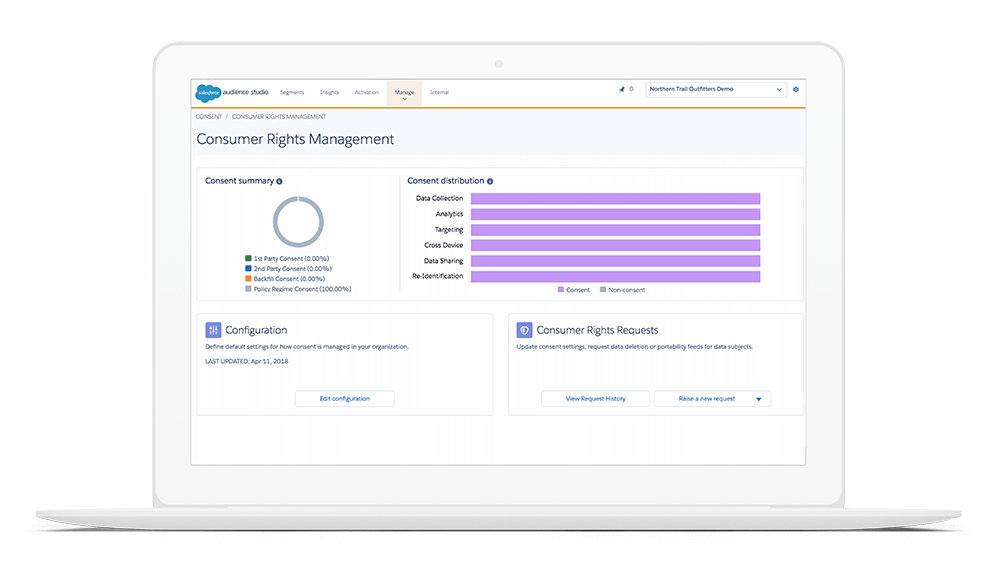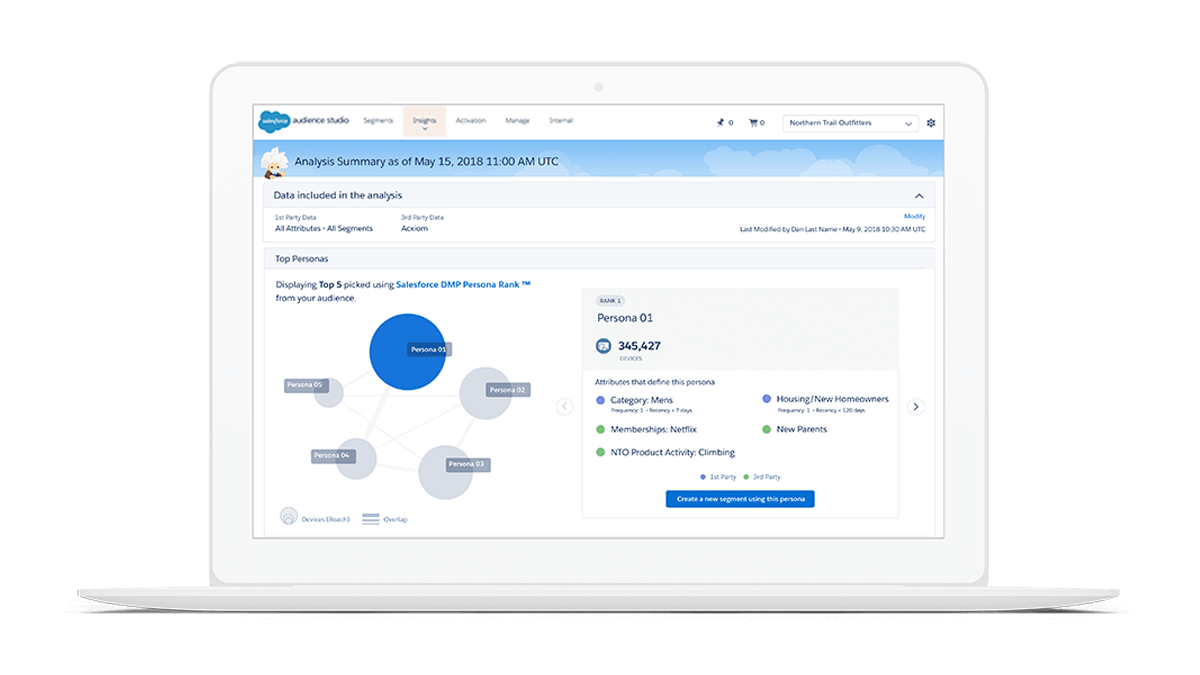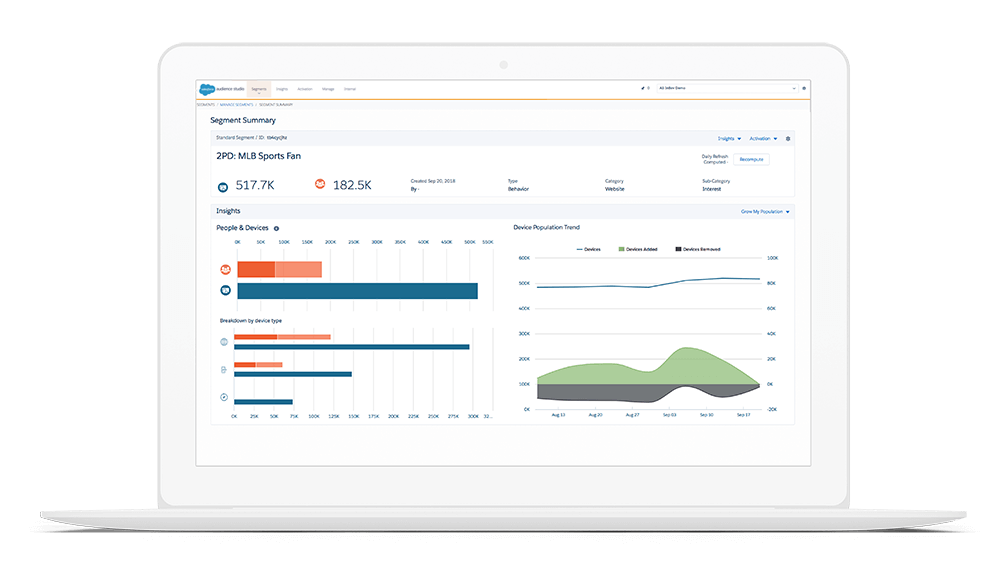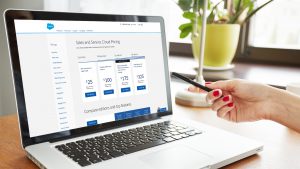In its commitment to putting data at the center of any decision in the modern business world, Salesforce offers many solutions. Among them is Salesforce Audience Studio, formerly Salesforce DMP. In previous articles we have discussed DMPs or Data Management Platforms so let’s see, then, this tool within the Salesforce ecosystem.
What is Salesforce DMP?

Salesforce DMP, or Audience Studio, is a platform that collects, stores, organizes, and centralizes data from different sources, own or external. It works in real time, unifying user data collected from multiple sources into a single profile for each customer. Then, it analyzes this information until it reaches a deep understanding of the behaviors and preferences of each individual.
With this data, your company’s marketing team can create very specific audience segments for the development of hyper-personalized campaigns. Taking into account that they know in advance the tastes and preferences of the clients; it becomes much easier to attract their attention and close the sale process. In other words, Audience Studio gives companies the opportunity to deliver more personalized and therefore more valuable customer experiences.
How does it work?
Salesforce has its own data marketplace, Data Studio, which operates in the United States, Canada, and EMEA. This market, exclusive to companies that use the CRM, segments data based on themes and also allows third-party data to be acquired by performing a simple search. In other words, companies that wish to do so, can sell user data acquired through their communication channels for use by other companies with similar audiences. As a result, first-party data from one company can become second-party data for other companies.
It is important to clarify that:
- No company is obliged to sell your data without your consent. In addition to doing so, you can choose what data you want to share and who can have access to it.
- All data shared in the marketplace is anonymous. First-party data with personal details can neither be sold nor bought.
- It is a closed market. Only companies using Audience Studio can share or acquire data. For this same reason, shared data only comes from trusted partners.
- Once you have the data, you can combine it using the magic of Einstein, that is, artificial intelligence. This is how a tool in constant dynamism is born that, while transforming the data of its users into knowledge, launches a search for personalized content. In this way, it optimizes the experience of each client and maximizes the ROI rate of each marketing campaign.

What to do with Salesforce DMP?
Well, obviously, Salesforce DMP has several features. For the sake of synthesis, they can be summarized as:
- Create complete profiles of your customers: Capture, store, and unify customer data from any source, achieving a deeper understanding of their tastes and behaviors.
- Deliver more personalized customer experiences: Audience Studio enables you to create more precise audience segments using AI. With this, you can send them hyper-personalized messages on their favorite channel and at the right time.
- Discover new perspectives: By using artificial intelligence, you can discover new audiences based on their interests. Additionally, it can reveal trends and patterns in users that you have not seen before. Likewise, it allows an in-depth analysis of the customer’s journey at all touch points with your company and can reveal weaknesses and strengths.
- Manage consent: Audience Studio allows you to manage and customize multiple consent policies across different regulatory environments, to meet diverse trends, regulations, and audiences around the world.

Future of Salesforce Audience Studio
Like the rest of the DMPs, the future of Audience Studio has become somewhat uncertain. Much of the user data collected by DMPs is derived from tracking cookies on the web. This means that most people do not know what they are doing with their data, nor what it is used for. As a result of this, many browsers (Firefox, Safari, Edge) opted for the privacy of their users and began eliminating the use of cookies. Even Google made statements to support this removal. Added to this disappearance are other technological trends that allow stricter privacy controls, including the regulations imposed by the European Data Protection Legislation.
Currently, there is a lot of speculation that Salesforce might stop selling and pull the plug on their DMP. A CRM spokesperson made this announcement via email in mid-2021. However, Salesforce would not be without data management tools. Their customer data platform, Marketing Cloud CDP, is a very appealing alternative. Also based on a data-driven and customer-centric approach, it is a powerful tool for all areas involved in a product’s sales cycle: marketing, sales, support, and even the executives themselves.
Want to learn more about Salesforce tools for data management? At SkyPlanner we can help you. Feel free to write to us at hello@theskyplanner.com.



